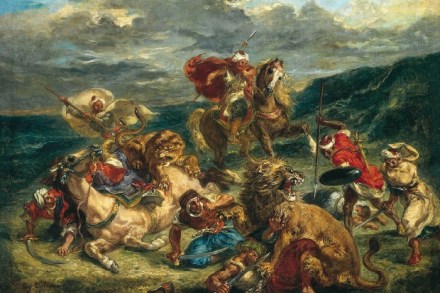Alice in cyberspace
Damon Albarn and Rufus Norris present a musical version of Alice in Wonderland. A challenging enterprise even if they’d stuck to the original but they’ve fast-forwarded everything to the present day. The titular heroine, a trusting and solemn Victorian schoolgirl, has been recast as Aly, a wheedling teenage grump who loathes her mum, her dad, her comp, her teachers and her playmates. ‘I hate being me,’ she announces. And as we learn more about her we’re increasingly struck by the sagacity of this verdict. To escape her distress she downloads a game from www.wonder.land and creates a cyber-self, Alice, who goes on adventures. Hmm. A computer game. Parents have for

















